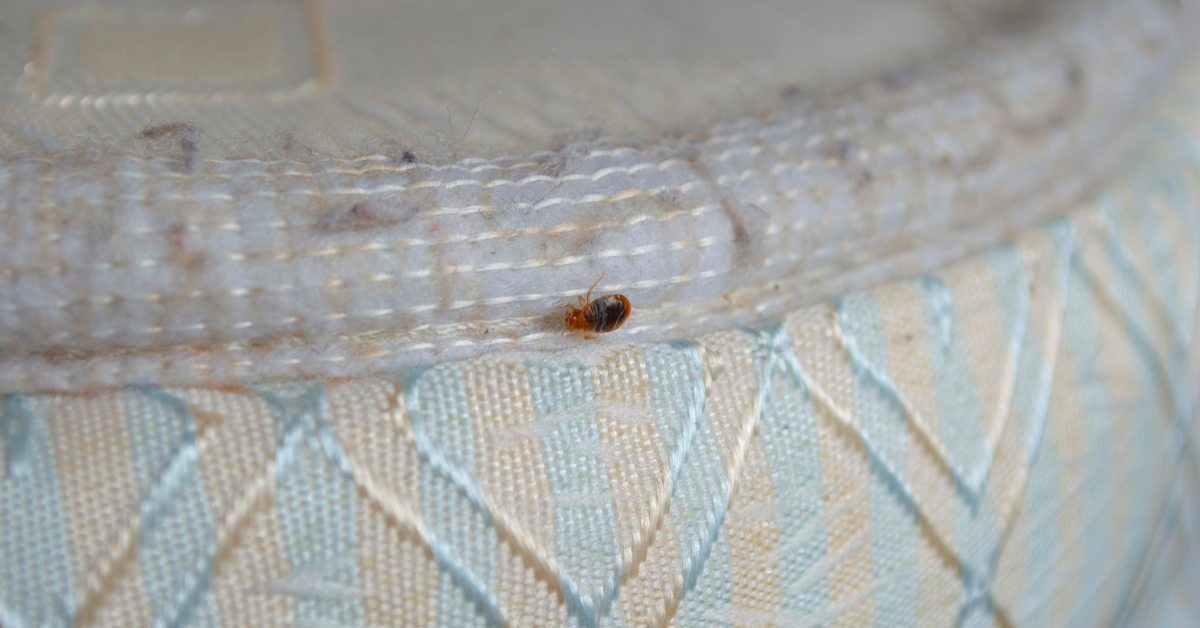Bedbug Infestations Surge in Seoul: South Korea Battles Resurgent Pests
First Paris, and now Seoul?
The recent bedbug hysteria in Paris captured global attention, highlighting a growing concern about these pests. Now, it appears that the issue of bedbugs is not confined to Paris alone.
Another region is grappling with a similar predicament, and this time, it’s much closer to home.
The Escalating Bedbug Infestation Reports
Lest you’re not aware, bedbugs are small, hardy insects with a reddish-brown hue.

They are wingless and feed on blood, primarily at night. These nocturnal creatures typically conceal themselves in mattresses, couches, and even in the crevices of walls, floors, and furniture.
Contrary to popular belief, bedbugs are not caused by poor personal hygiene. Instead, they are adept “hitchhikers,” easily attaching themselves to items like suitcases, linen, and clothing. This trait enables them to travel to new locations, thus facilitating the spread of these pests.
According to the South Korean government, bedbugs, once a widespread issue, were believed to have been eradicated since the 1970s.
However, recent events suggest a resurgence, particularly in saunas, gosiwons, and university dormitories.
In mid-September, a student at Keimyung University in Daegu reported being bitten by bedbugs in a dormitory. Following this incident, bedbugs and larvae were discovered in a sauna in Incheon. Additional reports have emerged from Bucheon city, Seoul, and Busan city.
As of 7 November 2023, the number of suspected bedbug cases across South Korea has risen to approximately 30.
This surge in bedbug reports is alarming, especially in densely populated areas like Seoul, where the rapid spread of these pests is a significant concern.
Considering that only nine bedbug-related cases were reported to the Korea Disease Control and Prevention (KDCA) since 2014, the current situation is particularly worrying.
South Korea’s Battle Against Bedbugs
In response to this resurgence, the South Korean government has initiated a comprehensive campaign against these hitchhiking pests. Park Yoo-mi, a senior health official in Seoul, stated, “While bedbugs do not transmit diseases, they are pests that cause discomfort, allergies, and psychological as well as economic harm due to their blood-feeding habits.”
On 7 November 2023, the government announced a plan for widescale inspections and preventive measures over the following four weeks.
From 13 November to 8 December, inspections will be conducted at high-risk facilities such as public transportation and bathhouses. Facilities found to harbor bedbugs will be immediately disinfected to contain the spread.
A government official noted that due to the misconception linking bedbugs to poor hygiene, some individuals might hesitate to report infestations, fearing embarrassment. Therefore, the number of cases is expected to rise in the near future.
Advertisements
Implications for Travel and Tourism
Currently, there have been no confirmed cases of bedbugs in South Korean airports.
However, to prevent any negative impact on tourism, the CEO of Korea Airports Corporation, Yoon, has announced enhanced pest control measures, aiming to establish a robust system for customer reassurance.
Staff will undergo training for constant on-site monitoring. Any detection of bedbugs will trigger immediate pest control actions, including isolating the affected area and removing the pests. A combination of physical and chemical control methods will be employed to prevent further infestation.
A Global Concern
The bedbug issue extends beyond Paris and South Korea. London has also reported a rise in bedbug cases.
Moreover, Hong Kong has issued warnings to travellers from South Korea, France, and the UK, expressing concerns about the potential spread of bedbugs.
Advertisements
It’s uncertain how widespread this issue will become, but for now, we can only hope that places like Singapore remain off the bedbugs’ list of potential new territories.
Read Also:
- 10 Mother’s Day Promotions in S’pore You Should Not Miss
- Why There Have Been Rumours About a ChatGPT Search Engine That’ll be Live on 9 May 2024
- Actor Bernard Hill, Who Was in Titanic & Lord of the Rings, Dies at 79
- Must-Have Singtel Prepaid SIM: Big Roaming Data & Rewards for Frequent Malaysia Travellers!
- Flood in Bukit Timah Condo On Saturday Wasn’t Caused by the Heavy Rain
- Popular M’sian Coffee Chain Oriental Kopi Coming to S’pore
Advertisements

